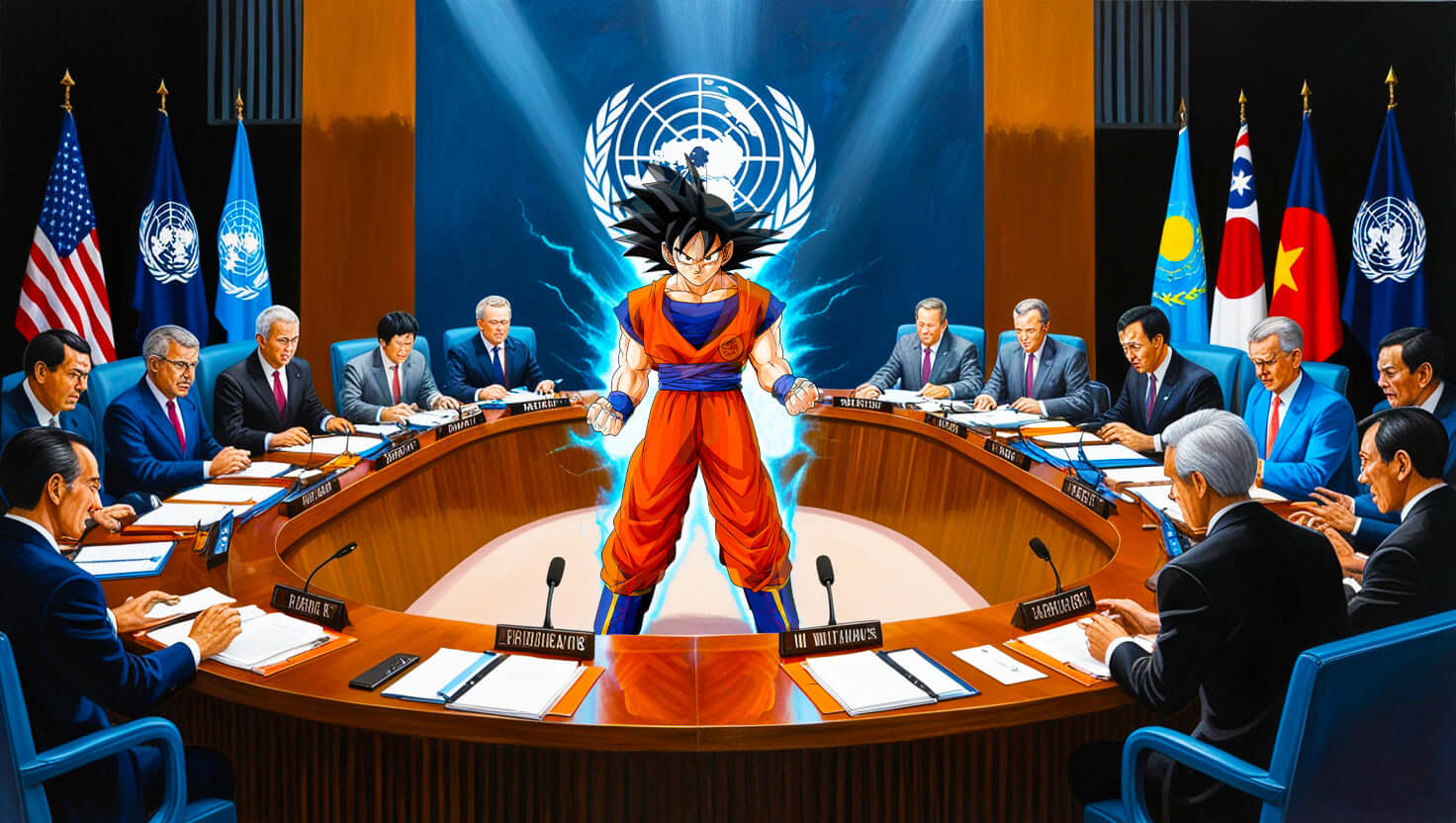
Japan’s Anime and Gaming Industry Under Fire from the UN
Japan’s anime, comic, and gaming (ACG) industries are global cultural powerhouses. Yet, recent allegations from the United Nations (UN) have sparked heated debates, especially concerning gender discrimination and workplace ethics. The situation has been further compounded by increasing pressures from Western financial entities. What’s really going on here? Let’s break it all down.
The Otaku Politician’s Stance
Who is Yamaro?
Yamaro, widely recognized as the “Otaku Politician,” has built his career advocating for Japan’s ACG industry. Known for his unapologetic love for anime and games, he frequently defends the cultural significance of these mediums.
His Response to UN Allegations
When the UN published a report criticizing Japan’s anime and gaming industries for alleged gender discrimination, Yamaro didn’t hold back. He dismissed the claims as baseless and accused the report of misrepresenting Japan. He even requested a formal retraction, arguing that such narratives unfairly target Japan’s cultural exports.
United Nations and the ACG Industry
Claims of Gender Discrimination
The UN report highlighted concerns over embedded gender norms within Japanese workplaces, extending these criticisms to the anime and gaming sectors. However, many argue that such claims oversimplify a complex cultural and economic landscape.
The Connection to Workplace Norms
Allegations of Low Animator Pay
It’s true that many animators in Japan face grueling hours and meager wages. Yet, conflating this with systemic discrimination has drawn criticism. The issue stems more from industry-wide budget constraints than intentional bias.
Idol Industry Criticism
The report also touched on ethical concerns within Japan’s idol industry, citing exploitation. While these issues deserve attention, critics claim the UN unfairly ties them to broader allegations against the ACG sector.
The Role of Western Payment Processors
Increasing Pressure on Japanese Companies
Over recent years, Western payment processors have begun imposing stricter policies on Japanese ACG companies. These policies often reflect Western social norms, causing friction in a market deeply rooted in its own traditions.
Financial Implications for ACG Corporations
For companies like Square Enix, adopting Diversity, Equity, and Inclusion (DEI) and Environmental, Social, and Governance (ESG) policies has coincided with financial setbacks. This raises questions about whether such frameworks are suitable for Japan’s unique business environment.
Broader Implications of UN’s Report
DEI and ESG Policies: Effective or Flawed?
While DEI and ESG initiatives aim to promote inclusivity, their implementation has faced criticism for being ineffective or even counterproductive in some cases. Japan’s cautious approach reflects skepticism about importing Western solutions wholesale.
Comparisons with Other Nations
Critics of the UN report have pointed out inconsistencies. Why single out Japan when other member nations face far more severe issues with workplace discrimination? This selective scrutiny appears arbitrary to many observers.
Cultural and Economic Impacts on Japan
How Anime Shapes Japanese Culture
Anime isn’t just entertainment; it’s a lens through which Japan shares its values, history, and creativity with the world. It’s no wonder many Japanese people see these critiques as attacks on their cultural identity.
Economic Significance of Anime and Gaming
The ACG industry is a cornerstone of Japan’s economy, contributing billions annually. Any threats to its stability could ripple across the nation, affecting jobs, tourism, and cultural exports.
The Future of Japan’s ACG Industry
Potential Strategies for Growth
Japan can tackle issues like animator pay and working conditions without sacrificing its cultural uniqueness. Investing in fair labor practices and promoting industry transparency could address these challenges effectively.
Addressing International Criticism
Engaging in dialogue with international organizations while standing firm on cultural sovereignty might be the best path forward. Collaboration doesn’t have to mean capitulation.
Conclusion
Japan’s ACG industry stands at a crossroads, facing external pressure and internal challenges. While the UN’s concerns should be taken seriously, solutions must align with Japan’s cultural and economic context. Defending its creative freedoms and addressing valid criticisms can coexist in harmony.
FAQs
-
Why is the UN criticizing Japan’s anime and gaming industries?
The UN’s report alleges issues like gender discrimination and poor workplace conditions in these sectors. -
What was Yamaro’s response to the UN report?
Yamaro criticized the report as unfair and misrepresentative, even calling for a retraction. -
Are animators in Japan underpaid?
Yes, many animators face low wages and long hours due to industry budget constraints. -
How significant is the ACG industry to Japan’s economy?
It’s a major economic contributor, generating billions annually and supporting numerous jobs. -
What steps can Japan take to address these criticisms?
Japan can improve labor conditions and promote dialogue with global organizations while preserving its cultural integrity.
#AnimeNews 🎥, #GamingIndustry 🎮, #UNReports 🌍, #LaborRights 🛠️, #EthicalEntertainment 🌟, #TrendingAnime 🚀, #JapanCulture 🇯🇵, #GamingEthics 🕹️, #AnimeFans ❤️, #IndustryReform 🔧, #GlobalEntertainment 🌐, #AnimeEconomy 💴, #WorkplaceRights ⚖️, #GamingNews 📰, #AnimeRevolution 🌸, #DigitalTrends 📱, #JapanUpdates 🗾, #AnimeCulture 🎌, #GamingLife 🎧, #CreatorsRights 🖌️, #CulturalSpotlight ✨, #TrendingTopics 🔥, #GlobalIssues 🌎, #AnimeInsights 📈, #GamingWorld 🌟, #TechAndMedia 🎮, #WorkerProtection 🛡️, #TrendingNow 🚨, #GlobalImpact 🌏, #PopCulture 💬.